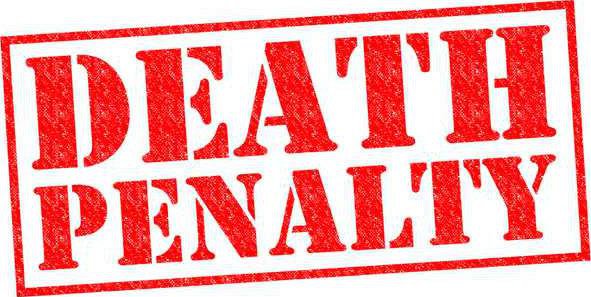Growing numbers of American faith leaders are speaking out against the death penalty, although surveys show that a majority of believers support it.
More than 100 religious leaders signed a pleading filed with the Louisiana Supreme Court on Monday, saying it was wrong for a prosecutor to cite the Bible in his argument to jurors who sentenced a man to death for killing his 1-year-old son, the Associated Press reported.
The legal brief filed on behalf of Rodricus Crawford, who is appealing his death sentence, said the district attorney's "biblical references were both unconstitutional and wrong," the article said.
Additionally, the National Association of Evangelicals announced this week that it would adjust its official stance on the death penalty to acknowledge evangelical Christians who don't support the punishment.
"It was time for an update and time for a change," said NAE President Leith Anderson to The Washington Post, noting that death penalty debates have changed dramatically since the original resolution was passed in 1973.
Fifty-six percent of U.S. adults favor the death penalty for convicted murderers, including 71 percent of white evangelical Christians, 53 percent of Catholics and 48 percent of the religiously unaffiliated, according to a March survey from Pew Research Center.
However, the more active people are in their faith community, the less likely they are to support the death penalty, which explains why religious leaders often become outspoken opponents of the law, wrote Tobin Grant, associate editor of the Journal for the Scientific Study of Religion, in a blog for Religion News Service.
"Among evangelicals, 70 percent of those who say they attend church weekly or more often support the death penalty," compared to 8-in-10 people who call themselves evangelicals but "rarely darken a church door," he said.
The death penalty has been in the news repeatedly this year, as policymakers have debated the legality and morality of using lethal injection drugs that sometimes fail to work. The Supreme Court upheld the use of the drugs in a 5-4 decision in June, CNN reported at the time.
More than 100 religious leaders signed a pleading filed with the Louisiana Supreme Court on Monday, saying it was wrong for a prosecutor to cite the Bible in his argument to jurors who sentenced a man to death for killing his 1-year-old son, the Associated Press reported.
The legal brief filed on behalf of Rodricus Crawford, who is appealing his death sentence, said the district attorney's "biblical references were both unconstitutional and wrong," the article said.
Additionally, the National Association of Evangelicals announced this week that it would adjust its official stance on the death penalty to acknowledge evangelical Christians who don't support the punishment.
"It was time for an update and time for a change," said NAE President Leith Anderson to The Washington Post, noting that death penalty debates have changed dramatically since the original resolution was passed in 1973.
Fifty-six percent of U.S. adults favor the death penalty for convicted murderers, including 71 percent of white evangelical Christians, 53 percent of Catholics and 48 percent of the religiously unaffiliated, according to a March survey from Pew Research Center.
However, the more active people are in their faith community, the less likely they are to support the death penalty, which explains why religious leaders often become outspoken opponents of the law, wrote Tobin Grant, associate editor of the Journal for the Scientific Study of Religion, in a blog for Religion News Service.
"Among evangelicals, 70 percent of those who say they attend church weekly or more often support the death penalty," compared to 8-in-10 people who call themselves evangelicals but "rarely darken a church door," he said.
The death penalty has been in the news repeatedly this year, as policymakers have debated the legality and morality of using lethal injection drugs that sometimes fail to work. The Supreme Court upheld the use of the drugs in a 5-4 decision in June, CNN reported at the time.


